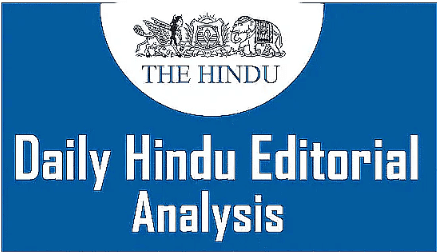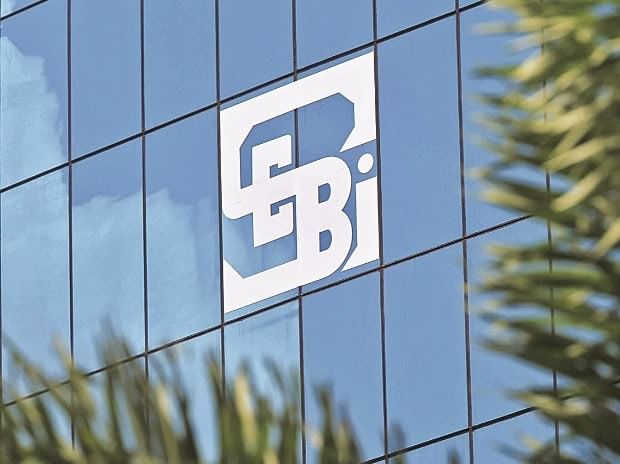The Hindu Editorial Analysis- 14th August 2024 | Current Affairs & Hindu Analysis: Daily, Weekly & Monthly - UPSC PDF Download

Single Digits
Why in News?
India's return of six medals from the just concluded Paris Olympics can be termed under- whelming at best. The nation secured one silver and five bronze medals, down from seven at Tokyo 2020 that included a gold and two silvers. At a time when the country is to di- versify its excellence. has found exuberant support from the government and big corporates, and was aiming for a double-digit medal yield, the Olympic fortnight belied expectations.
Some lesser known facts about Olympics
- The Olympic Games began in ancient Greece around 776 BC in Olympia.
- Happening every 4 years, they included sports competitions among representatives from different city-states.
- The modern Olympics were reintroduced by Baron Pierre de Coubertin from France.
- The first modern Olympic Games took place in Athens, Greece, in 1896.
- The Olympic Rings symbolize the connection of the 5 inhabited continents (Africa, Americas, Asia, Europe, and Oceania).
- The Winter Olympics started in 1924 in Chamonix, France, showcasing sports like skiing, ice skating, and ice hockey.
- The Olympic Torch Relay was introduced during the 1936 Berlin Games.
- The number of countries participating has increased from 14 in the 1896 Games to over 200 in recent times.
- Women were first permitted to compete in the 1900 Paris Olympics.
- The Paralympics, designed for athletes with disabilities, commenced in Rome in 1960.
About Paris Olympics
- The Paris Olympics, officially named the Games of the XXXIII Olympiad, are set to take place in Paris, France.
- This occasion, commonly recognized as the 2024 Summer Olympics, is a global multi-sport competition involving athletes from various countries.
- Sports featured in the event comprise Athletics, Aquatics, Archery, Badminton, Basketball, Boxing, Canoeing, Cycling, Equestrian, Fencing, Football, Golf, Gymnastics, Handball, Hockey, Judo, Modern Pentathlon, Rowing, Rugby Sevens, Sailing, Shooting, Skateboarding, Sport Climbing, Surfing, Table Tennis, Taekwondo, Tennis, Triathlon, Volleyball, Weightlifting, and Wrestling.
India’s Participation:
India is set to participate in various sports at the Paris Olympics 2024, with several medal prospects across disciplines.
| Athletes and Key Events | |
| Athletics |
|
| Badminton |
|
Boxing |
|
Shooting |
|
Wrestling |
|
Weightlifting |
|
Hockey |
|
Table Tennis |
|
Archery |
|
Gymnastics |
|
Step Down
Why in News?
Not since the Harshad Mehta scam of 1992 has India's securities regulations and oversight faced such intense scrutiny.
The Securities and Exchange Board of India (SEBI), established in 1992 as a statutory body, is now under fire for alleged bias and conflict of interest at its top levels.
The Indian stock market is now valued at an impressive $5.3 trillion, significantly raising the stakes.

Origin of SEBI
- Before SEBI, the Controller of Capital Issues held regulatory power.
- In 1988, the Securities and Exchange Board of India was established as a non-statutory body to oversee the securities market. It gained legal authority in 1992 with the SEBI Act 1992.
SEBI: Its Organizational Structure
Structure
- The chairman (chosen by the Indian government)
- Two members (Officials from the Indian Finance Ministry)
- One member from the RBI (Reserve Bank of India)
- Five members (Selected by the Indian government). At least three must work full-time.
Location: SEBI's main office is in Mumbai. The regional branches of the Securities and Exchange Board of India are in Ahmedabad, Kolkata, Chennai, and Delhi.
Powers of SEBI
- Quasi-legislative Powers: The Securities and Exchange Board of India is responsible for creating important rules and regulations, such as duties, rules against insider trading, and necessary disclosure requirements.
- Quasi-executive Powers: The Securities and Exchange Board of India can inspect financial records and other crucial papers to find and collect evidence of wrongdoing.
- Quasi-judicial Powers: If fraudulent or unethical behaviors are discovered in the stock market, SEBI India can make legal decisions.
- Security Exchange By-laws: The Securities and Exchange Board of India has the authority to approve the by-laws of stock exchanges to ensure their smooth operation.
Functions of SEBI
- SEBI's goal is to safeguard investors' interests in securities and foster the growth of the securities market.
- SEBI can require securities exchanges to modify their rules.
- It has the authority to examine the financial records of recognized securities exchanges and financial intermediaries periodically.
- SEBI can also instruct specific companies to list their shares on one or more securities exchanges.
- Brokers and sub-brokers can be asked by SEBI to register.
- SEBI can combat wrongdoing in the securities market by introducing new regulations and technologies.
- SEBI plays a crucial role in educating investors about how the securities market operates.
- SEBI serves as a central hub for portfolio managers, bankers, stockbrokers, investment advisers, merchant bankers, registrars, and share transfer agents.
Significance of SEBI
- Faster Trade Settlement: It has brought in various technical features that help trades settle more quickly. One key change was the introduction of a T 2 settlement cycle in 2023.
- Digital Certificates: It has done away with physical certificates that were prone to delays in the mail, theft, and forgery. This has made the settlement process faster and less complicated.
- Investigative Powers: It has the authority to collect data, such as call records, from individuals or entities involved in securities transactions under investigation. This ensures that the operations of exchanges are transparent.
- Prevent Fraud: It supports self-regulating bodies and prohibits deceitful and unjust trading practices.
Criticism of SEBI
- Appointment Procedure: It is claimed that the makeup of the search-cum-selection committee responsible for suggesting the appointment of the chairman and each full-time member of SEBI has been changed.
- Influence of the Finance Ministry: There were instances where it was thought that SEBI was told to act in a specific manner when dealing with cases involving certain business groups.
- Excess Powers: SEBI possesses certain extra powers that enable it to place significant restrictions on economic activities. The organization incurs losses under suspicion.
- Tackling Insider Trading: The rules and regulations concerning the prevention of insider trading are insufficient.
Way Forward: Improving SEBI
Regular Review:
- SEBI needs to regularly check its work to do a good job.
Attract Best Talent:
- SEBI should not become just another bureaucratic organization by only hiring officials. It should consider bringing in skilled individuals from the private sector as well.
New Technologies:
- SEBI can use new technologies like Big Data, Machine Learning, and Artificial Intelligence to improve its performance.
Securities Appellate Tribunal
- About: The Securities Appellate Tribunal is a legal body established under section 15K of the Securities and Exchange Board of India (SEBI) Act, 1992.
- Mandate: The Securities Appellate Tribunal is responsible for hearing appeals and settling disputes arising from SEBI's decisions.
- Jurisdiction: It can hear appeals from all over India.
- Powers of Appeals: It reviews appeals related to:
- Decisions made by the Insurance Regulatory and Development Authority of India (IRDAI);
- Rulings of the Pension Fund Regulatory and Development Authority (PFRDA);
- Decisions issued by the Securities and Exchange Board of India.
- Members: The panel includes Presiding officers, judicial members, and technical members.
- Selection: Members are chosen based on recommendations from a committee led by the Prime Minister of India.
- Criteria:
- They should not be declared bankrupt;
- They must not have a criminal record involving dishonesty;
- They should be both physically and mentally fit;
- They must not hold any conflicting interests affecting their role;
- They must not misuse their authority in a way that harms public welfare.
|
61 videos|5403 docs|1144 tests
|
















